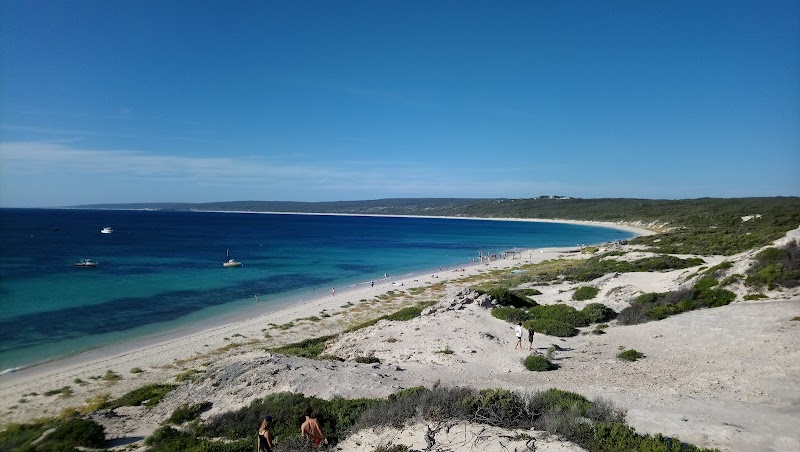
Exploring the Southern Forests Birdwatching Weekend in Northcliffe, Western Australia
The Southern Forests Birdwatching Weekend in Northcliffe invites adventurers and bird lovers to explore verdant trails where native birds call and forest secrets reveal themselves. Combining approachable hikes with rich wildlife encounters, it’s a must for those ready to engage with Western Australia’s wild heart.
Start Early for Optimal Bird Activity
Birds are most active in the cooler morning hours, so begin your hike at dawn or early morning to catch the best sightings and avoid midday heat.
Wear Sturdy Waterproof Footwear
Trails may be damp or slippery from morning dew or recent rain, so solid grip and waterproofing are essential to maintain traction and comfort.
Bring Ample Water and Snacks
Carry at least two liters of water and nutrient-dense snacks to stay energized and hydrated on unshaded forest trails.
Stick to Marked Trails
Protect fragile ecosystems and avoid disturbing nesting birds by following designated paths and respecting signage.
Exploring the Southern Forests Birdwatching Weekend in Northcliffe, Western Australia
Every October, Northcliffe in Western Australia quietly transforms into a haven for bird enthusiasts during the Southern Forests Birdwatching Weekend. Here, amid towering karri and jarrah trees that stand like sentinels over the forest floor, the trails beckon hikers and birders alike to engage with a landscape fiercely alive. The experience begins on well-marked paths averaging three to five kilometers in length, across terrain that rises gently but deliberately. Elevation gain hovers around 100 to 200 meters, balancing challenge with accessibility, making the hikes suitable for both casual walkers and seasoned trekkers.
Walking these forested corridors, you’ll notice how sunlight teases the canopy, throwing dappled patterns onto mossy undergrowth. The forest breathes around you, leaves stirring and the occasional rustle signaling an unseen observer. Bird calls pierce the quiet — the sharp cry of the red-capped robin, the steady drum of the New Holland honeyeater, or the melodic whistle of the western spinebill. These birds are not mere inhabitants but active participants in this ecosystem, inviting observers to witness their daily rituals.
Practical preparation here is key. The Southern Forests can shift moods swiftly; morning fog clings tightly, then retreats as the mid-morning sun climbs higher. Hydration is crucial, so pack at least two liters of water per person. Footwear should be sturdy yet flexible enough to handle a mix of packed dirt, fallen leaves, and occasional slippery patches from morning dew or recent rains. Early starts are rewarded: the cooler hours coax birds down from the heights, and the light showcases the forest’s textures best.
Each trail on the birdwatching weekend offers a balance of solitude and spectacle. The paths weave through pockets of old-growth forest and open glades where wildflowers burst with color, attracting insects and, in turn, birds. At lookout points, views stretch over the gently rolling hills—a reminder that this forest is part of a grander, wilder landscape that pushes back at human presence, ever shifting and adapting.
Timing your visit in spring ensures you catch migratory visitors and breeding displays, adding an element of dynamic wildlife interaction. Yet every season offers a slightly different adventure, from summer's chorus of insect life to winter’s quieter, reflective woodlands.
Respect for the environment means leaving no trace. Stick to marked trails to protect fragile understory plants and nesting sites. Be patient and still; the birds respond less to frantic searching than to quiet, deliberate observation.
The Southern Forests Birdwatching Weekend in Northcliffe is more than a walk; it’s a two-way conversation with a landscape fiercely itself, inviting both challenge and connection. For those who answer the call, a vivid encounter with nature awaits — practical, accessible, and unforgettable.
Nearby Trips
All Adventures
Boat Charters
Water Activities
Adventures near Northcliffe, Western Australia
Discover the unique and memorable adventures that make Northcliffe, Western Australia special.
Frequently Asked Questions
What kinds of birds can I expect to see during the weekend?
Expect to see iconic local species such as red-capped robins, western spinebills, western thornbills, and New Holland honeyeaters. Spring migrants like the white-breasted robin also make appearances.
Are the trails suitable for families or beginners?
Yes. Trails range from easy to moderate and offer clear signage, making them accessible for families with children and those new to forest hiking.
Is there any accommodation nearby or camping options?
Northcliffe offers comfortable lodges, bed and breakfasts, and small inns. Camping is available at dedicated sites, but booking ahead is recommended during event weekends.
Are dogs permitted on the birdwatching trails?
Dogs are generally discouraged, especially during bird nesting season, to disturb wildlife as little as possible.
What environmental practices should visitors follow?
Visitors must stick to established trails to protect flora and fauna, avoid feeding wildlife, and carry out all rubbish. Minimizing noise helps maintain the forest’s natural ambiance.
Can I participate in guided birdwatching walks during the event?
Yes, organized guided walks are available, often led by local birding experts. These offer valuable insights and increase the likelihood of spotting elusive species.
Recommended Gear
Lightweight Hiking Boots
Provides traction and ankle support to handle variable terrain and protect from wet ground.
Binoculars
Essential for close-up birdwatching without disturbing the wildlife.
Water Bottle or Hydration Pack
Staying hydrated is crucial, especially in warmer months or during longer walks.
Light Rain Jacket
Spring showers can come unexpectedly; a compact rain jacket keeps you dry without adding bulk.
Local Insights
Hidden Gems
- "Climbs Hill lookout for panoramic forest views rarely crowded"
- "Lush waterfalls on The Cascades trail offer serene resting spots"
Wildlife
- "Spot the elusive noisy scrub-bird in dense lowland thickets"
- "Keep an eye out for banded honeyeaters attracted to native flowers"
History
"Northcliffe sits on traditional land of the Bibbulmun people, whose stewardship shaped the forest's ecology long before modern conservation efforts."
